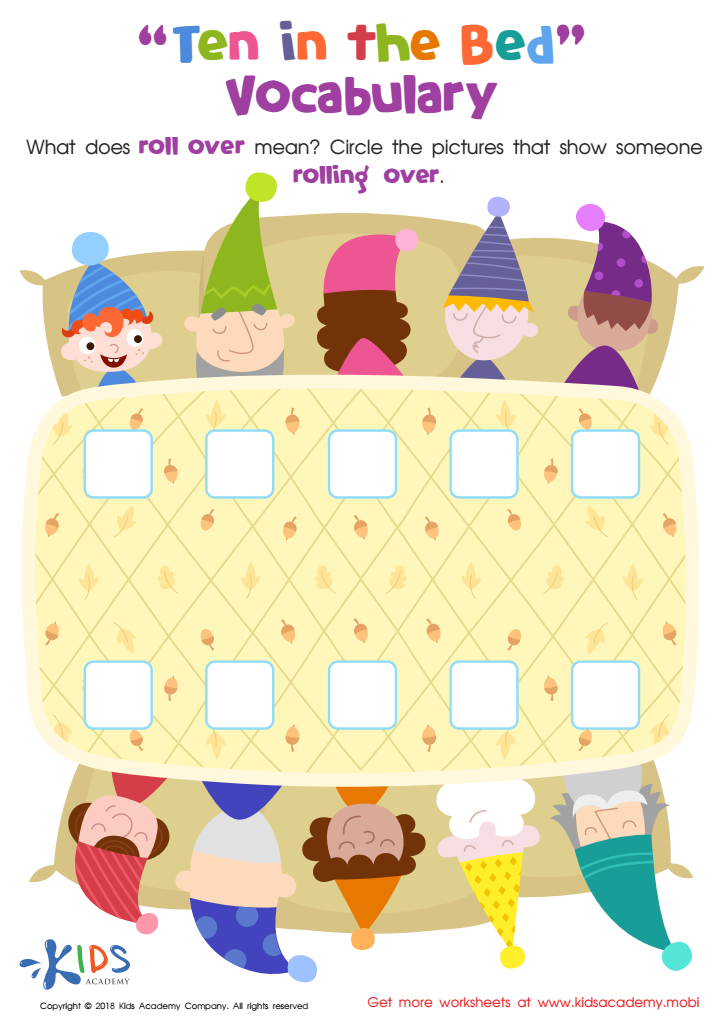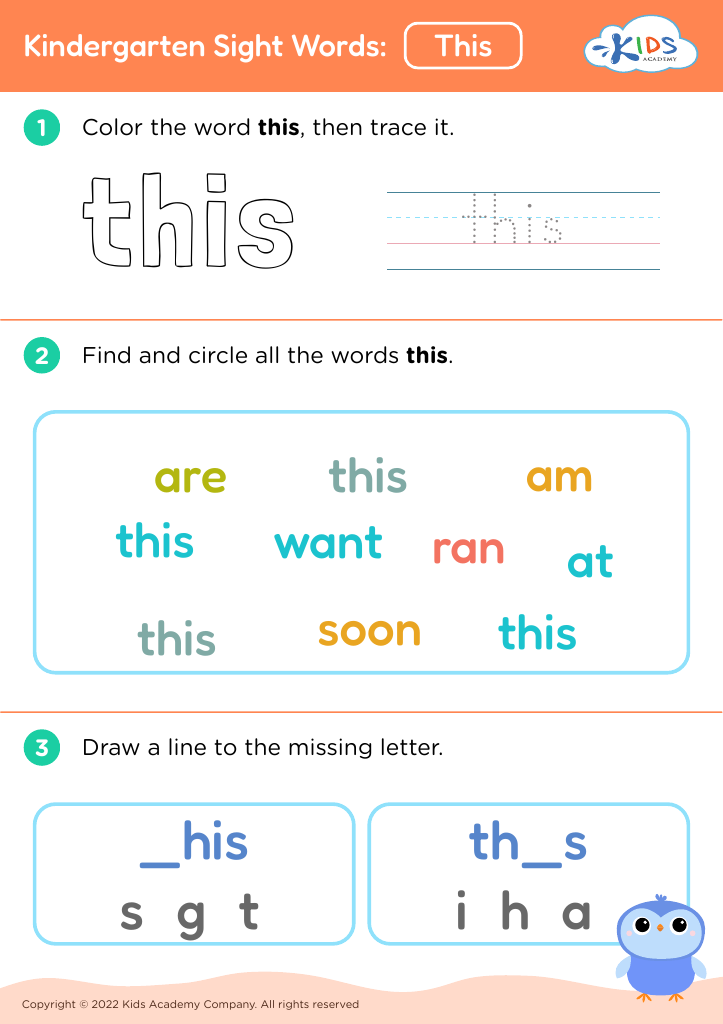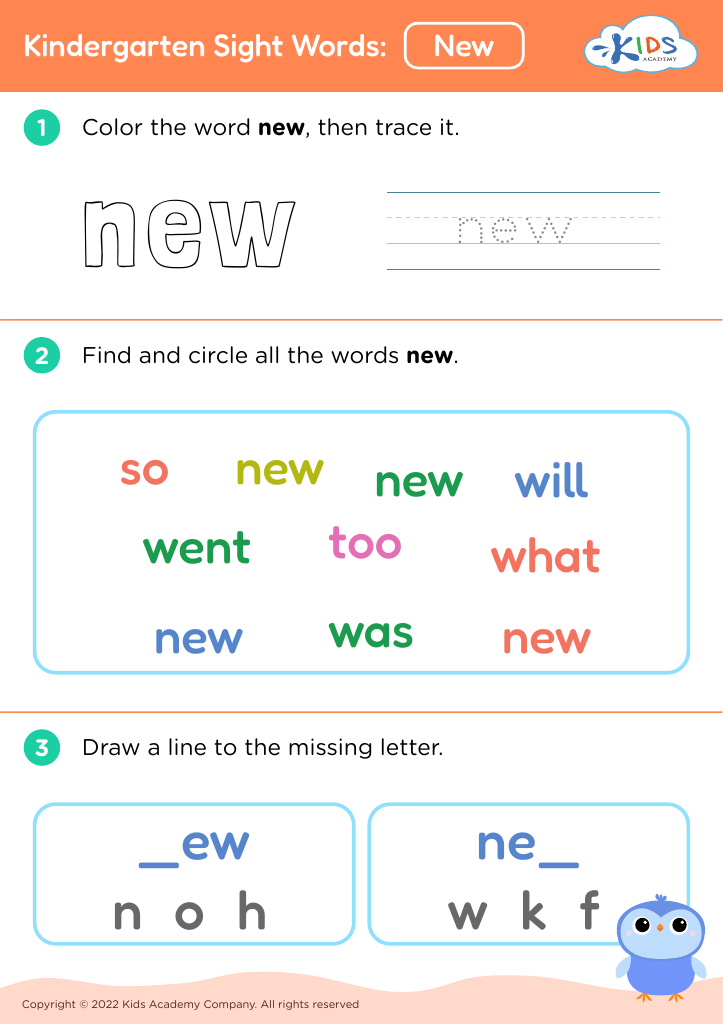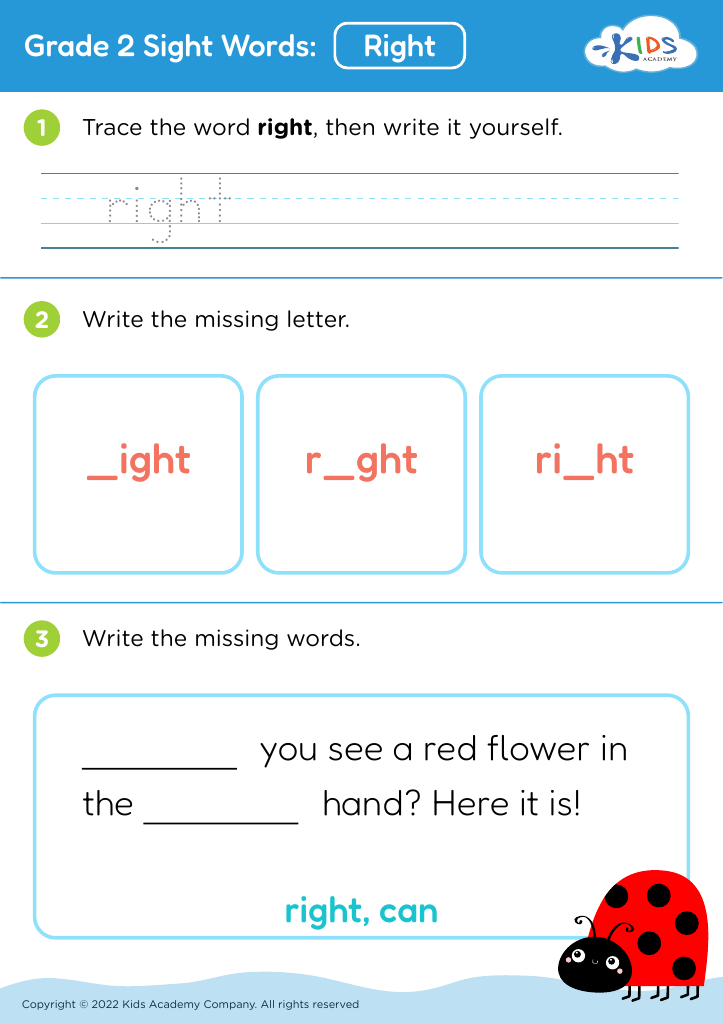Counting practice Building Vocabulary Worksheets for Ages 4-7
8 filtered results
-
From - To
Enhance your child's early math and language skills with our engaging Counting Practice Building Vocabulary Worksheets for ages 4-7. These expertly designed printables combine counting exercises with essential vocabulary-building activities, perfect for young learners. Each worksheet incorporates colorful illustrations and fun themes to captivate children's interest while they practice counting and improve their word recognition. By integrating multiple learning areas, these worksheets provide a holistic approach to early education, fostering both numerical understanding and language development. Ideal for classroom use or at-home practice, watch your child excel in math and vocabulary through our interactive and enjoyable resources.


Ten in the Bed: Vocabulary Worksheet


Fish Worksheet


More Octopus Facts Worksheet
Counting practice and building vocabulary for children ages 4-7 are foundational elements crucial for their developmental milestones. During these formative years, children are like sponges, capable of absorbing new information at an incredible rate. Engaging them in counting helps establish early math skills, which are vital not only for future academic success but also for understanding everyday concepts like time, money, and measurement. Counting also enhances cognitive development, including number recognition, sequencing, and basic arithmetic skills, which lay the groundwork for more complex problem-solving abilities in later years.
Simultaneously, building vocabulary is equally important as it directly impacts a child's communication skills, reading comprehension, and overall ability to learn across all subjects. A rich vocabulary allows children to express themselves more clearly and confidently, fostering better peer relationships and enhancing their ability to understand instructions and educational content. These skills are essential for literacy, as knowing a broad range of words can make reading both easier and more engaging, setting a positive foundation for lifelong learning.
Therefore, parents and teachers must prioritize counting practice and vocabulary building to create a well-rounded educational experience. It nurtures critical thinking, boosts confidence, and equips children with the essential tools needed for a successful academic journey and everyday life skills.
 Assign to My Students
Assign to My Students































